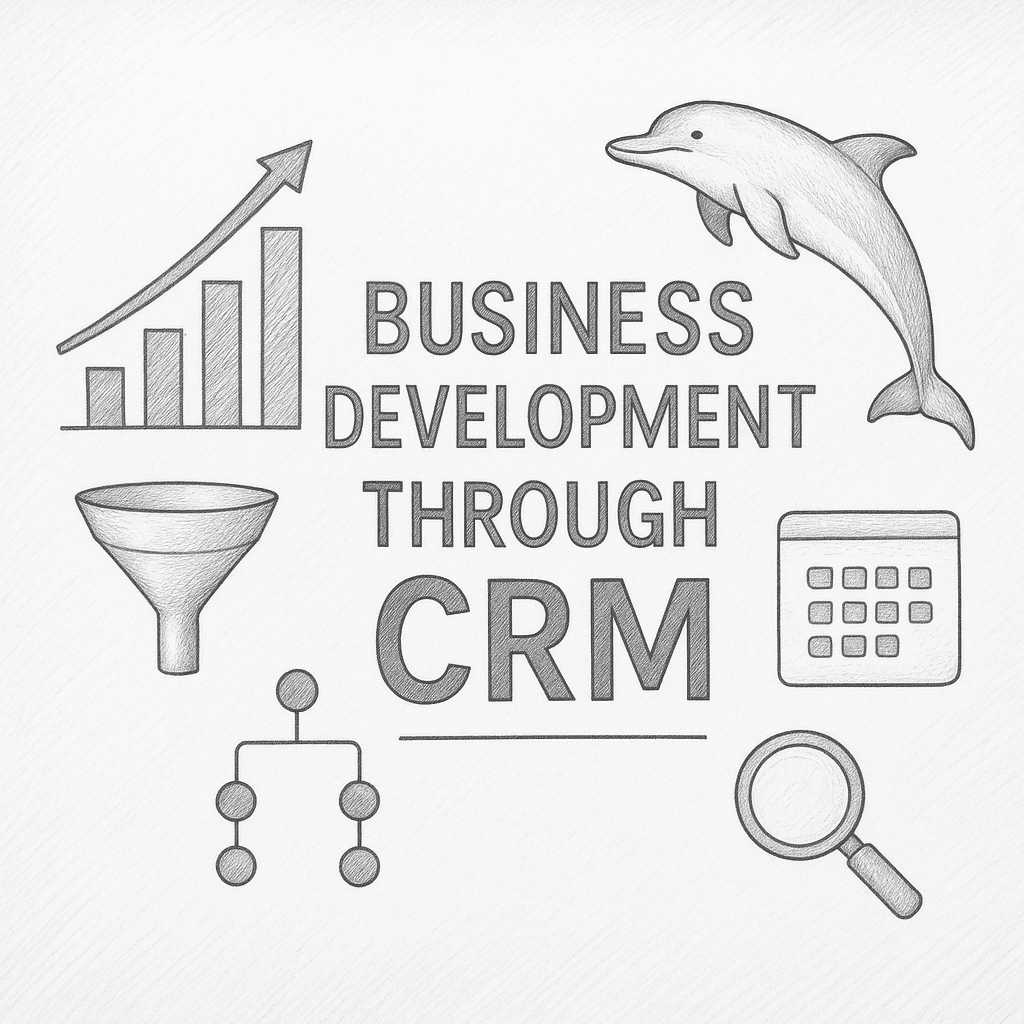As a business trading in todays digital environment where information is king and visibility is key, mastering the art of keyword research is the gateway to online success. Whether you’re a seasoned digital marketer, a business owner, or a budding content creator, understanding how to harness the potential of keywords is paramount in navigating the intricacies of search engine optimisation (SEO).
Keywords serve as the linchpin between what users are searching for and what your content offers. They are the secret sauce that unlocks the door to a higher rank on search engine results pages (SERPs), directing organic traffic to your website. In this era of ever-evolving algorithms, Google core updates and dynamic online ecosystems, staying ahead requires a strategic approach to keyword research.
This comprehensive article aims to demystify the process of keyword research, offering insights into the tools, techniques, and trends that will empower you to uncover the most relevant and impactful keywords for your content. From understanding user intent to dissecting long-tail keywords, we will explore the nuances that elevate your content to the forefront of search engine visibility.
In this article we look at the intricate world of keywords, where we unravel the mysteries of search algorithms and equip you with the knowledge to not only survive but thrive in the competitive digital landscape. Whether you’re looking to enhance your website’s SEO, drive targeted traffic, or simply understand the language of search engines, this guide is your compass to navigate the exciting and ever-changing terrain of keyword research.
What is keyword research
Conducting keyword research is a crucial step in the development of an effective online presence and search engine optimisation (SEO) strategy. This process involves identifying and analysing the terms and phrases that users are most likely to use when searching for information, products, or services relevant to a particular business or topic.
To begin with, it’s essential to define the goals of the keyword research. This could include increasing organic traffic, improving search engine rankings, or targeting specific user demographics. Understanding these objectives helps guide the research and ensures that the chosen keywords align with broader business or content strategies.
Once the goals are established, researchers typically turn to various tools and platforms to generate a list of potential keywords. Popular tools like Google Keyword Planner, SEMrush, or Ahrefs provide insights into search volumes, competition levels, and related keywords. These tools help marketers and website owners identify the most relevant and valuable keywords for their specific objectives.
The next step involves evaluating the identified keywords based on relevance and competitiveness. Relevance is crucial to ensure that the chosen keywords accurately reflect the content or offerings of the website. On the other hand, assessing competition helps gauge the difficulty of ranking for a particular keyword. Striking a balance between relevance and competition is essential for selecting keywords that can drive targeted traffic while being achievable in terms of SEO efforts.
Keyword research is not a one-time activity; it requires continuous monitoring and adaptation. Search trends, user behaviour, and industry dynamics evolve over time, making it important to regularly revisit and update the keyword strategy. Additionally, staying informed about competitors’ keyword strategies and adjusting your approach accordingly is vital for maintaining competitiveness in search engine results.
Keyword research involves setting clear objectives, utilising tools to generate a comprehensive list of potential keywords, evaluating their relevance and competitiveness, and adapting the strategy over time to align with changing trends and business goals. This iterative process is fundamental to achieving and maintaining a strong online presence in the ever-evolving landscape of search engines and user behaviour.
The goals of keyword research
The primary objectives of keyword research, namely increasing organic traffic, improving search engine rankings, and targeting specific user demographics.
Increasing Organic Traffic:
One of the overarching goals of keyword research is to boost organic traffic to a website. Organic traffic refers to the visitors who land on a site through unpaid search results. By identifying and strategically incorporating high-performing keywords into the website’s content, marketers aim to enhance its visibility on search engine results pages (SERPs). This increased visibility can lead to a higher click-through rate, drawing more users to the site without the need for paid advertising.
Improving Search Engine Rankings:
Improving search engine rankings is closely tied to the goal of increasing organic traffic. Search engines use complex algorithms to determine the relevance and authority of a webpage based on its content and keywords. Through effective keyword research, marketers can optimise their content to align with these algorithms, thereby improving the website’s ranking on SERPs. The higher a website ranks, the more likely users are to click on it, emphasising the critical link between keyword selection and search engine rankings.
Targeting Specific User Demographics:
Keyword research isn’t just about finding the most popular terms; it’s also about understanding the audience and tailoring content to meet their specific needs. By incorporating keywords that resonate with a particular demographic, businesses can attract a more targeted audience. This strategic approach ensures that the content speaks directly to the interests and preferences of the intended users, increasing the likelihood of engagement and conversion. Keyword research, therefore, becomes a powerful tool for aligning a website with the demographic profiles of its target audience.
The goals of keyword research extend far beyond the mere identification of words and phrases. It is a strategic endeavor aimed at driving meaningful outcomes for online success. Whether the focus is on increasing organic traffic, improving search engine rankings, or targeting specific user demographics, the meticulous selection and implementation of keywords play a pivotal role. As the digital landscape continues to evolve, mastering the art of keyword research remains a foundational element in achieving and maintaining a competitive edge in the vast and dynamic realm of online visibility.
Evaluating Identified Keywords
When conducting keyword research, the evaluation of identified keywords involves a nuanced assessment of their relevance and competitiveness. Relevance is a pivotal criterion as it ensures that the chosen keywords align closely with the core offerings, products, or services of the business. This alignment is crucial to attracting users whose search queries match the intent behind the keywords. A careful examination of user intent helps in tailoring the selection to address the specific needs and expectations of the target audience.
Content alignment is another key aspect of relevance evaluation. It’s essential to ascertain whether the identified keywords can be seamlessly integrated into the existing or planned content strategy. The goal is to create content that not only incorporates the keywords naturally but also provides value to users, meeting their informational or transactional needs.
Additionally, the consideration of long-tail keywords adds depth to the relevance evaluation process. Long-tail keywords, being more specific, often indicate a higher level of user intent. Their inclusion in the keyword strategy allows businesses to capture niche audiences interested in precise information, potentially leading to higher conversion rates.
On the flip side, competitiveness evaluation involves assessing the landscape in which these keywords operate. Competitor analysis is a crucial step, wherein the focus is on understanding the strength of competing websites targeting the same keywords. This involves examining factors such as domain authority, backlink profiles, and overall content strategies of competitors. A higher domain authority and a robust backlink profile can make it more challenging to outrank competitors in search engine results.
A thorough examination of the search engine results page (SERP) for specific keywords provides insights into the types of content that currently rank high. This SERP analysis aids in identifying potential content gaps and tailoring the strategy to stand out among the existing competition.
Furthermore, it’s essential to consider the seasonality of keywords, as certain terms may experience fluctuations in search volume based on the time of year or specific events. Understanding these patterns helps in planning content and advertising strategies accordingly.
The dual assessment of relevance and competitiveness in keyword research requires a strategic and comprehensive approach. By aligning keywords closely with the business’s offerings and thoroughly analysing the competitive landscape, marketers can optimise their keyword strategy to enhance both visibility and engagement in the highly dynamic digital environment.
Tools for conducting keyword research
Several tools are commonly employed to conduct comprehensive keyword research. One prominent tool is Google Keyword Planner, a free tool within Google Ads that provides insights into search volumes, competition levels, and suggested bid estimates for specific keywords. It’s particularly useful for businesses looking to optimise their presence on Google.
Another widely used tool is SEMrush, offering a comprehensive suite of features for keyword research. SEMrush allows users to explore keywords, analyse competitors’ strategies, and identify new opportunities. The platform provides data on organic and paid search, helping marketers make informed decisions about their content and advertising efforts.
Ahrefs is another popular tool in the realm of SEO and keyword research. It offers insights into keyword difficulty, search volume, and click-through rates. Ahrefs also provides data on backlinks, allowing users to assess the link-building strategies of competitors and refine their own approaches.
Moz Keyword Explorer is a tool that focuses on simplifying the keyword research process. It provides data on keyword difficulty, click-through rates, and organic click-through rates. Additionally, Moz offers insights into the potential of ranking for a specific keyword.
UberSuggest is a user-friendly tool that provides keyword ideas and insights into search volumes, cost per click, and competition levels. It’s beneficial for those looking for a straightforward and accessible platform for basic keyword research.
These tools, among others, serve as valuable resources for businesses and marketers seeking to optimise their online content, improve search engine rankings, and enhance their overall digital presence. By leveraging these tools, businesses can gain a deeper understanding of their target audience’s search behaviour and tailor their strategies accordingly.
Understanding User intent and Long Tail
Understanding user intent is a fundamental concept that goes beyond merely identifying relevant words or phrases. User intent refers to the underlying motivation or purpose behind a user’s online search. It involves deciphering what a person is looking to accomplish when entering a specific query into a search engine. Recognising user intent is crucial for delivering search results that align with the user’s expectations, as search engines aim to provide the most relevant and valuable content based on the user’s intent.
Long-tail keywords, on the other hand, represent a more specific and detailed approach to keyword targeting. Unlike broad, generic keywords, long-tail keywords consist of longer and more specific phrases that cater to a niche or a highly specialised area. These phrases often have lower search volumes compared to broader keywords, but they tend to attract more qualified and targeted traffic. Long-tail keywords are valuable in capturing the specific queries of users who are further along in their decision-making process, as they reflect a more refined search intent. Emphasising long-tail keywords in your content strategy can enhance the likelihood of reaching a more receptive audience and improve overall search engine optimisation efforts.
Relevance and Competitiveness
Identifying relevance and competitiveness in keyword research is crucial for developing an effective and targeted SEO strategy. Relevance refers to how closely a keyword aligns with the content or services you provide. When evaluating relevance, consider the search intent behind the keyword and whether it accurately reflects what your audience is looking for. Analysing user queries and understanding the context in which people use certain keywords helps you pinpoint those that are most relevant to your business or content.
Competitiveness, on the other hand, assesses the level of difficulty in ranking for a particular keyword. This involves gauging the competition from other websites that are targeting the same or similar keywords. Factors such as domain authority, backlink profile, and content quality of competing pages play a role in determining competitiveness. Tools like keyword difficulty scores or competitive analysis tools can provide insights into the level of competition for a given keyword.
To identify relevance, delve into your target audience’s mindset and think about the language they use when searching for products or information related to your niche. Conducting thorough research on your audience’s preferences and behaviours can guide you in selecting keywords that resonate with them.
For competitiveness, leverage keyword research tools that offer insights into the competition for specific keywords. Look for metrics such as search volume, CPC (Cost Per Click), and keyword difficulty. High search volume may indicate popularity, but it also often comes with increased competition. Keyword difficulty scores, provided by tools, give an estimate of how hard it is to rank for a particular keyword based on various factors.
Additionally, analyse the current search engine results pages (SERPs) for your target keywords. Examine the content and authority of the top-ranking pages to understand the competition landscape. If top-ranking pages are well-established and authoritative, it may be more challenging to compete for those keywords.
A successful keyword research strategy involves balancing relevance to your audience with an awareness of the competitiveness of the chosen keywords. This dual focus ensures that you not only attract the right audience but also have a realistic chance of achieving visibility in search engine results.
Search Algorithms
Search algorithms play a crucial role in shaping the landscape of keyword research, influencing the way businesses and content creators identify and target relevant terms. These algorithms, such as those employed by search engines like Google, continuously evolve to improve the accuracy and relevance of search results. Understanding how search algorithms work is essential for effective keyword research, as it enables individuals and businesses to optimize their content for better visibility.
Keyword research involves identifying the words and phrases that potential users or customers are likely to use when searching for information online. Search algorithms consider a variety of factors to determine the relevance and quality of content, and keywords play a pivotal role in this assessment. As algorithms become more sophisticated, they increasingly focus on context, user intent, and the overall user experience, moving beyond simple keyword matching.
In the past, keyword research primarily revolved around identifying high-volume and low-competition keywords to achieve better rankings. However, modern search algorithms prioritise user satisfaction, emphasising the importance of delivering valuable, relevant content. This shift has led to a more holistic approach to keyword research, where understanding the user’s intent and providing comprehensive, informative content is just as important as targeting specific keywords.
Moreover, search algorithms consider the semantic relationships between words and phrases. This means that keyword research is not solely about identifying individual keywords but also about recognising the semantic connections within a topic. Content creators must consider related terms, synonyms, and variations that align with the context of their content to meet the expectations of search algorithms and provide a richer user experience.
The impact of search algorithms on keyword research extends to the concept of “long-tail keywords.” These are more specific and detailed phrases that may have lower search volumes but often indicate a higher level of user intent. As algorithms evolve, they become better at understanding and ranking content based on long-tail keywords, rewarding content creators who address niche topics with depth and expertise.
Search algorithms have transformed the landscape of keyword research by emphasising user intent, context, and content quality. Content creators and businesses need to adapt their keyword research strategies to align with these evolving algorithms, focusing on providing valuable information and a positive user experience rather than solely chasing high-volume keywords. This approach ensures that content remains relevant and visible in an ever-changing online environment.
Unleashing the power of keyword research Summary
Conducting thorough keyword research emerges as a crucial strategy for enhancing website performance. The foundation of any successful online presence lies in understanding the language and queries that resonate with the target audience.
Keyword research serves as a compass, guiding website owners and marketers to comprehend the language and terms their potential visitors use when seeking information. By aligning website content with these keywords, organisations can optimise their pages for search engines, subsequently improving their visibility in search results. This visibility is pivotal in attracting organic traffic, as users often rely on search engines to find relevant information.
Moreover, keyword research acts as a strategic tool for staying ahead of industry trends and understanding user intent. As consumer behavior evolves, so do search patterns. Regularly updating and refining keyword strategies enables businesses to remain attuned to shifting preferences, ensuring that their content remains relevant and meets the needs of their audience.
Beyond enhancing search engine optimisation (SEO), effective keyword research informs content creation and marketing strategies. By identifying high-performing keywords, organisations can tailor their content to address the specific needs and interests of their target audience. This not only boosts the likelihood of attracting the right visitors but also contributes to a more engaging and valuable user experience.
Furthermore, the competitive landscape in the digital realm underscores the importance of strategic keyword deployment. Analysing competitors’ keyword strategies provides valuable insights into market dynamics and enables organisations to identify gaps or opportunities within their niche. This knowledge empowers businesses to refine their own approach and differentiate themselves in a crowded online space.
The significance of conducting thorough keyword research extends beyond mere SEO. It serves as a cornerstone for optimising website performance, enhancing visibility, and staying attuned to the ever-changing dynamics of online user behaviour. By investing time and resources in comprehensive keyword research, businesses can position themselves for sustained success in the digital landscape. Contact us now for a detailed report on the keywords that are relevant to your business.
















